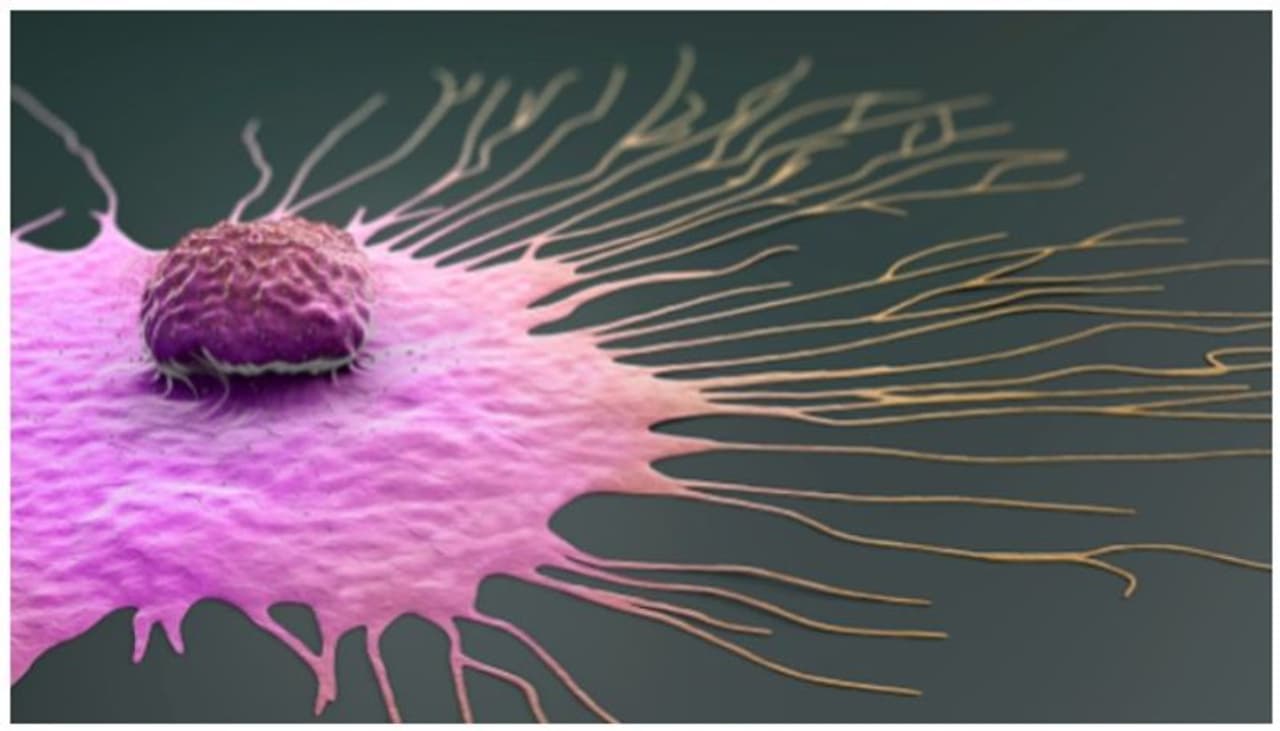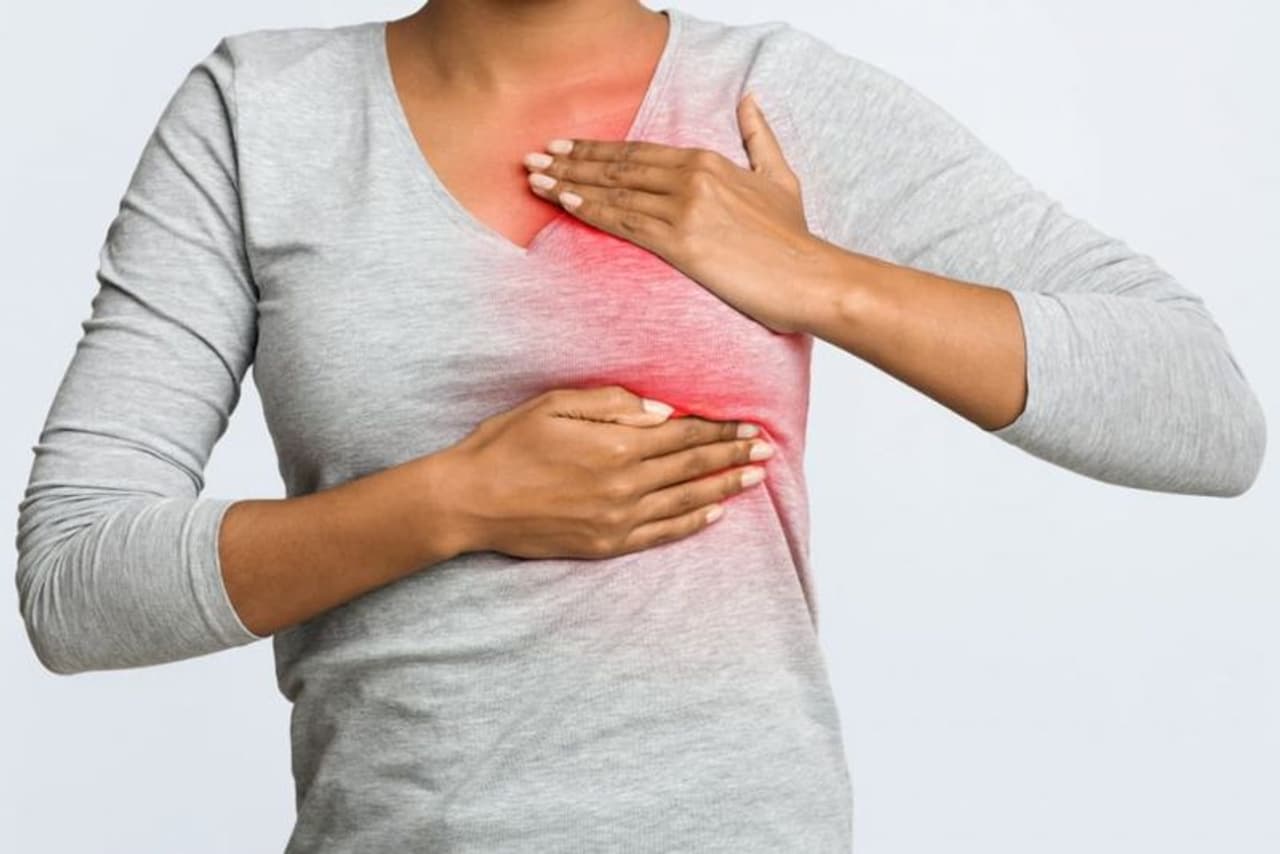Women die most from breast cancer, whereas males die less. Nutrition and lifestyle are associated with more breast cancer risk factors. A good diet may minimise breast cancer incidence and progression/recurrence.
Breast cancer is the main cause of cancer mortality in women but is less prevalent in males. Evidence shows that a higher number of risk factors for breast cancer are related to diet and lifestyle (obesity, eating habits, and alcohol intake). As a result, healthy nutrition may lower the incidence of breast cancer and the risk of progression or recurrence.

It is time for you to re-evaluate your diet & lifestyle:
What is a healthy meal plate?
- Fill your plate with approximately 50% (or more) vegetables, 25% (or more) protein, and up to 25% or a lesser amount of starchy vegetables or whole grains as your Dietitian prescribes.
- 1 or 2 fruits daily as a snack or dessert
• A plant-based diet containing dhals, sprouts, beans, unpolished grains, and millets is strongly advised.

Reach out for healthy fats:
• Consume healthy fats from cold-water fish, chia seeds, flaxseeds, sunflower seeds, walnuts, olive oil, avocados, rice bran oil, and nut or oilseed-based oils on a daily basis.
• Increase your fish intake to 2–3 times each week.
• Eat almonds, avocado, seafood, and oilseeds to include omega-3 and omega-9 fatty acids in your diet.
• Limit and utilise omega 6-containing oils such as red meat, sunflower oil, and whole milk.
• Limit your consumption of highly saturated foods including red meat, organ meat, cheese, sausages/processed meat, butter, and ice cream.
• Limit your consumption of trans-fatty acid-containing foods, such as professionally produced baked products, packaged snacks, and hydrogenated fats like Vanaspati.
• Avoid using or heating oils frequently.
• Healthy fats may limit breast tumour growth, so don't avoid them.
Eat protein to avoid muscle loss, which is frequent in all forms of cancer.
- Increase your poultry, fish, and vegetarian protein intake (legumes and lentils).
- Include protein with every meal/snack

Add antioxidants, vitamins A, C, E, and selenium to your diet: Some have chemo-preventive characteristics that contain phytonutrients, antiestrogenic that prevent cancer-causing cells from proliferating further in the body, reduce oxidative stress, and inflammation, and change the epigenome, such as
- · Carotenoids: dark yellow/orange/green vegetables and fruits
- · Lycopene: tomatoes, grapefruit, watermelon
- · Phenolic compounds, diallyl sulfides: garlic, green tea, onions, shallots, dark leafy veg
- • Glucosinolates, isothiocyanates, sulforaphane, and indoles found in cabbage, cauliflower, broccoli, mustard leaves, and sprouts.
- • Curcumin: Use turmeric in your regular cooking.
- Selenium-rich brazil nuts, shellfish, and foods high in vitamin C such as amla, kiwi, guava, and capsicum.
Remember these words of wisdom:
- Include micro greens regularly harvested from your kitchen garden.
- Avoid buying processed flours, sweeteners, and polished grains.
- Factors that increase the risk of breast cancer: high intake of pickled/processed foods/ caffeine, regular consumption of smoked/charred/grilled foods, and cooking at high temperature (>300 degrees F).
- Soy supplements are not recommended but natural sources can be used as advised.
- Check and keep your Vitamin D levels at normal.
- Food safety guidelines to be followed if you have a weakened immune system or while chemotherapy. Wash and clean foods thoroughly during preparation. Do not consume raw and undercooked foods while dining out.
- A dietitian must prescribe the foods listed above, and anything in excess or insufficient is always risky.
- Regularly assess your body fat percentage and maintain healthy body fat, muscle, bone mass, and good basal metabolic rate with a reduced waistline.
- Limit alcohol consumption and quit smoking: Research suggests that consuming 3-4 standard drinks or more per week is associated with an increased risk of breast cancer recurrence, particularly among postmenopausal and overweight/obese women, which causes specific epigenetic changes and interacts with medications.
- Add adequate fluids at least 1.5 – 2lt of water daily and if you feel nauseated drink ginger ale or chilled fluids.
- Physical activity reduces the risk of breast cancer hence exercise regularly
Authored by - Ms. Edwina Raj, Senior Dietitian, Aster CMI Hospital
